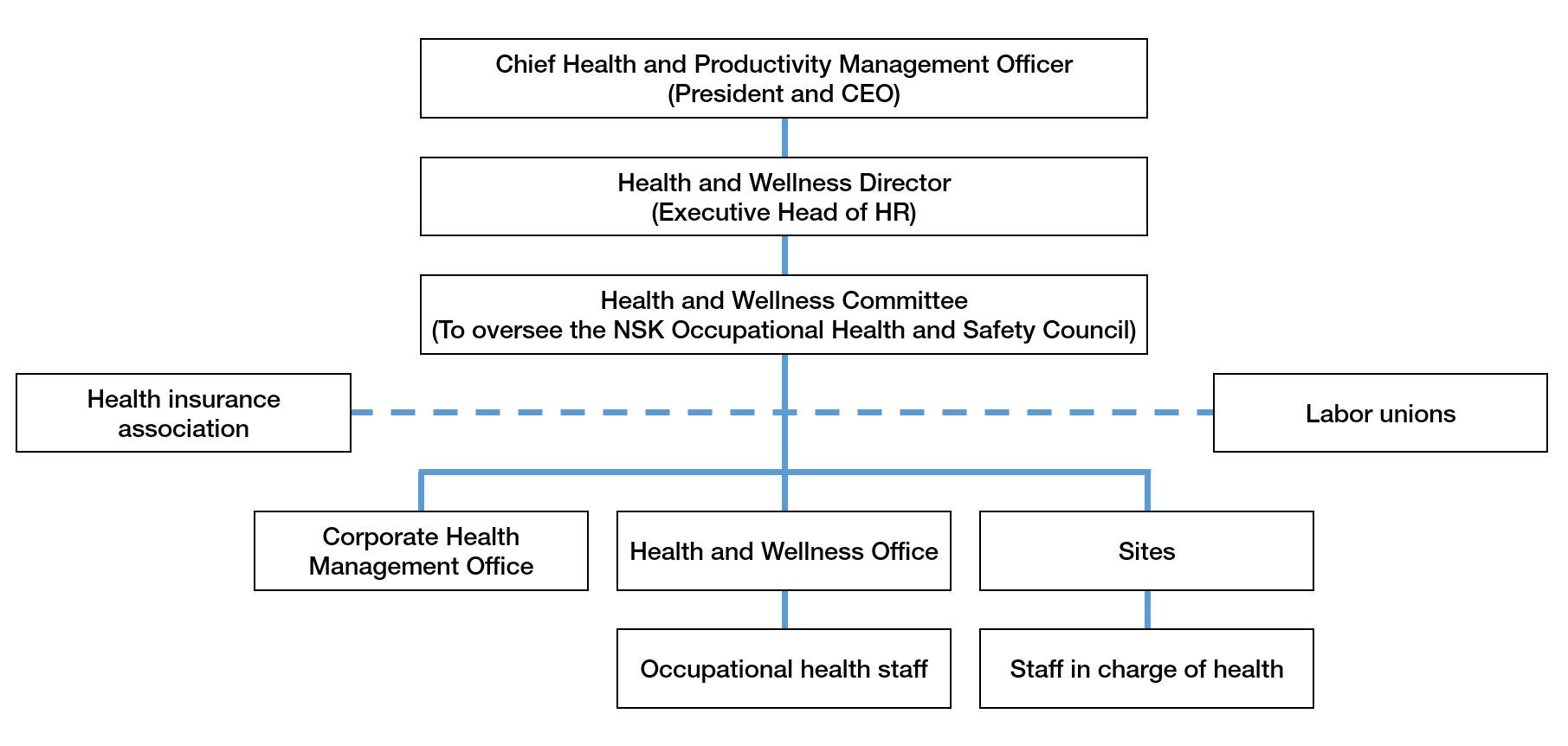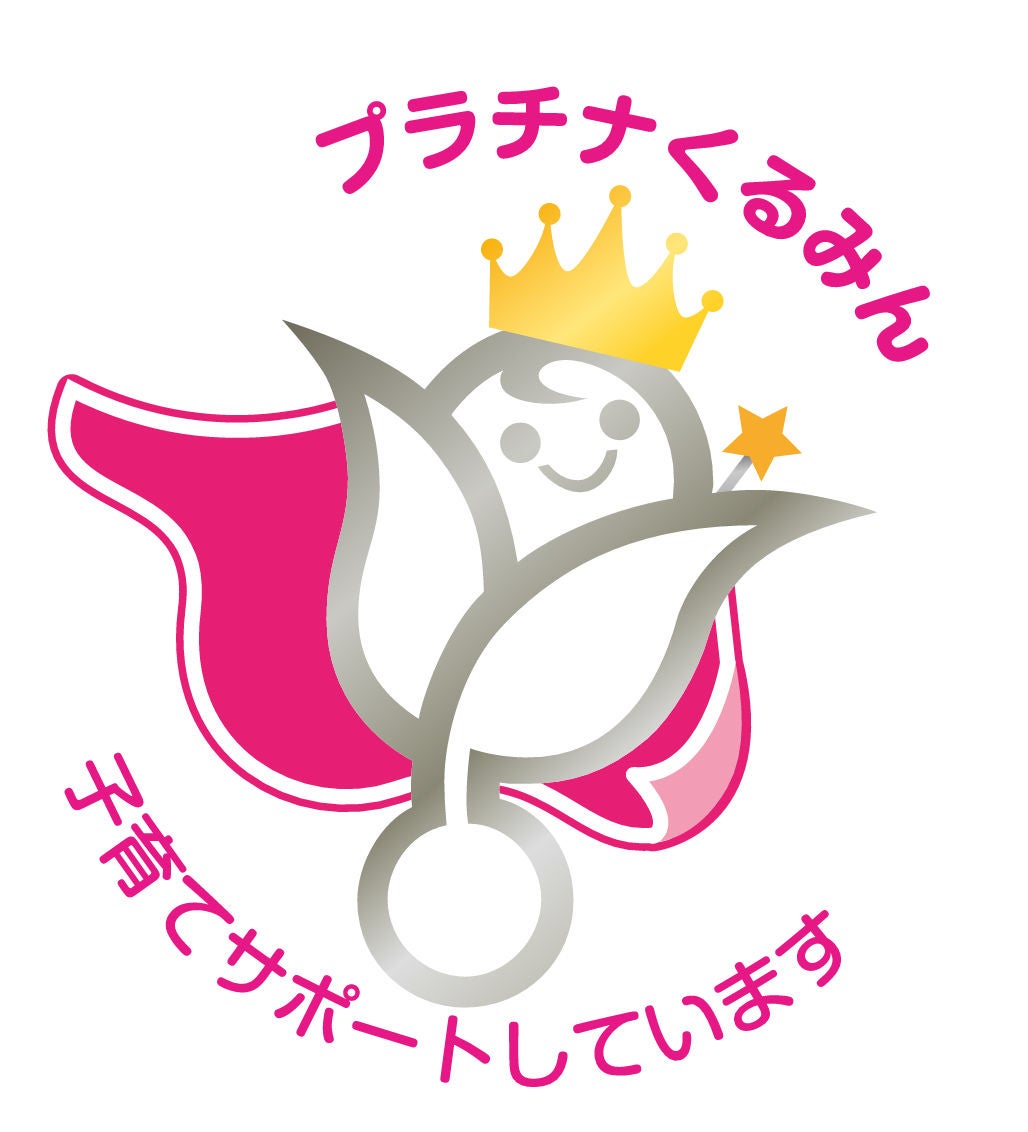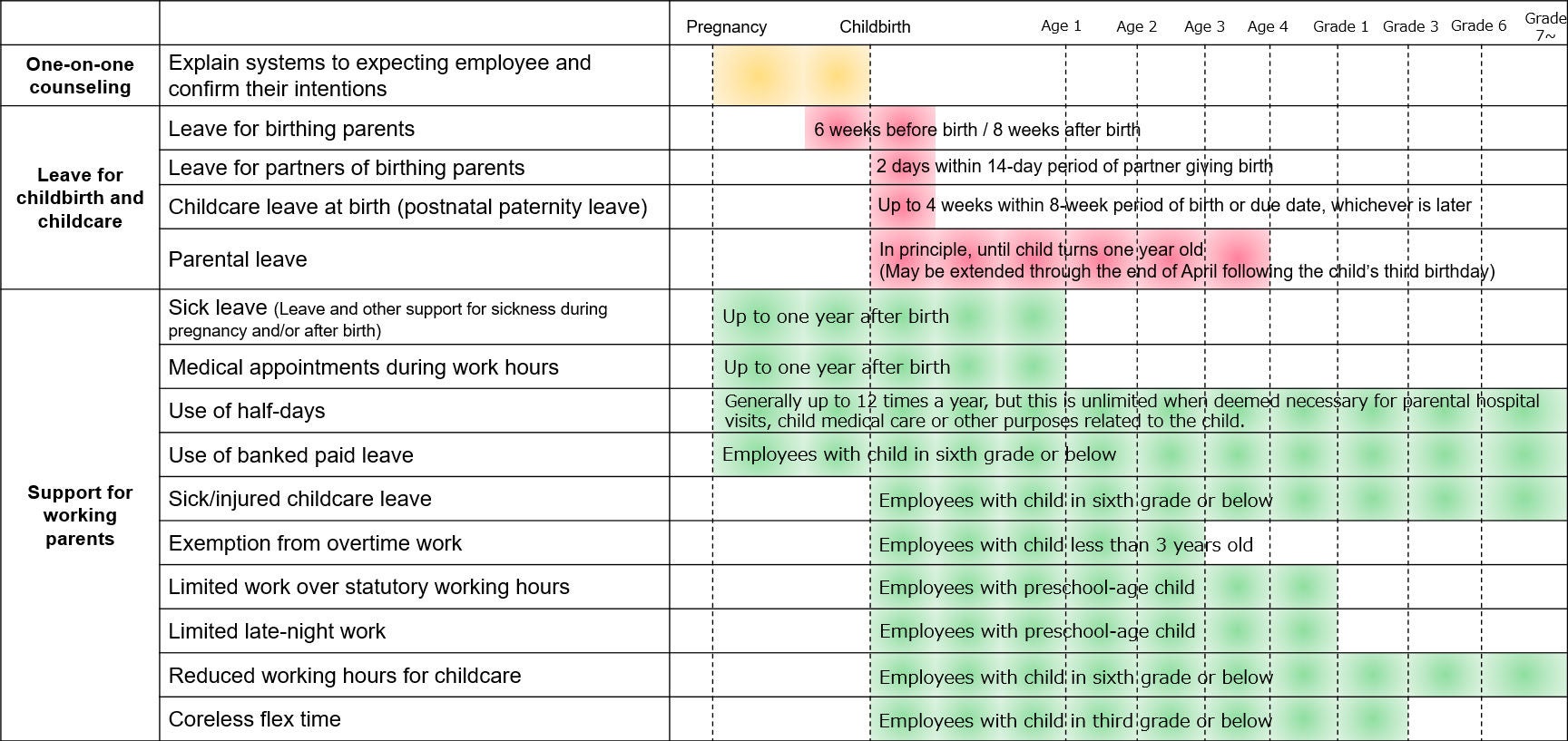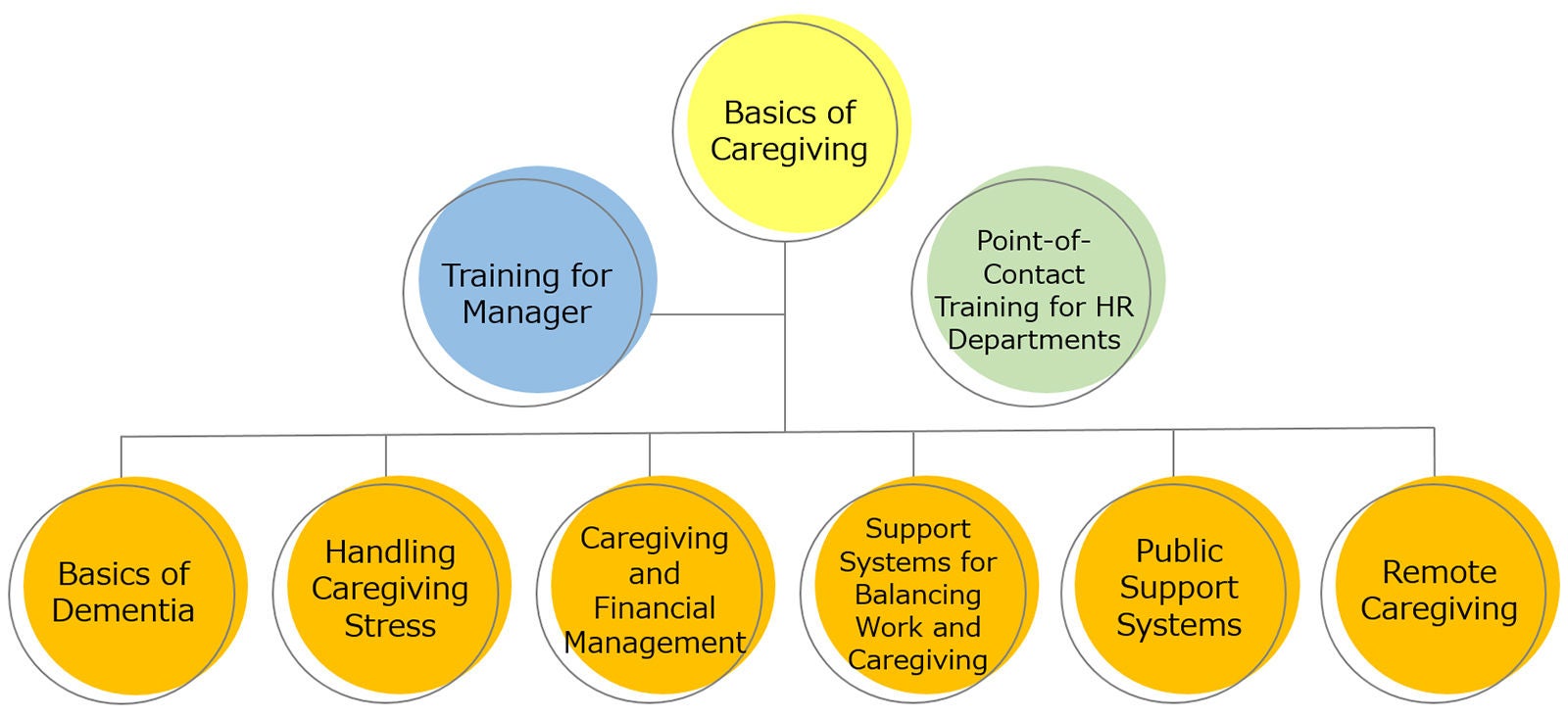Safe and Healthy Workplaces and Work-Style Reforms: Building More Engaging Workplaces
Health and Wellness
◆Promoting Health and Wellness (Japan)
As part of the “enhancement of managerial resources” initiative outlined in NSK’s Mid-Term Management Plan (MTP2026), we aim to “maximize the value of our human capital” by focusing on three key areas.
One of these areas is creating “safe and healthy workplaces.” We believe that the physical and mental well-being of our employees and their family members is essential for a vibrant workplace. As such, we see investing in health as a key to raising corporate value.
To promote health and wellness, we have established the NSK Basic Policy on Health and Wellness and implemented a company-wide health management system. Our Health and Wellness Management Strategy Map clearly outlines the relationships between challenges, goals, and expected outcomes (such as improving presenteeism and absenteeism, and maximizing engagement). We have also identified health issues and specific measures under the three pillars of health initiatives and are actively implementing these activities.
◆NSK Basic Policy on Health and Wellness
At the core of NSK’s Vision to set the future in motion is a desire to create a brighter tomorrow where we can all lead safe, healthy, and fulfilling lives. It is NSK’s firm belief that the health of our employees and their families is foundational to achieving this future. The health—both of body and mind—of each one of our employees and their families is an invaluable asset to the Group. As such, NSK has established a management structure that prioritizes health and is committed to a full range of activities to promote employee wellness, all with the aim of improving their physical and mental health.
In order to continue to be a company that is needed, trusted and relied upon by society, we position measures to maintain and improve health as an important investment that serves as the basis for maximizing human capital value, and we will continue to proactively pursue initiatives.
Akitoshi Ichii, President & CEO, NSK Ltd.
◆Corporate Health Management Structure (Japan)
NSK is committed to helping employees maintain and improve their health and wellness. Our collaborative approach involves the executive head of HR, the Corporate Health Management Office, the Health and Wellness Office, labor unions, a health insurance association, onsite labor divisions, and occupational health staff—all working together under the supervision of the president & CEO of NSK Ltd.
In April 2019, we established the Corporate Health Management Office within the HR & GA Division Headquarters to enhance our capacity to achieve our health and wellness objectives. We also built an organization that is more conducive to coordination. The resident occupational physicians at each site report to the Corporate Health Management Office, and nurses, including specialized public health nurses, also hold concurrent posts in the office. The Corporate Health Management Office regularly shares information and holds discussions with both the health insurance association and the labor union to ensure effective collaboration. Each site appoints a manager of occupational safety and health and works to advance NSK’s health management. In addition, by holding regular meetings of occupational health staff and the Wellness Committee—a function established to oversee the activities of the NSK Central Occupational Health and Safety Council—we will continue improving our ability to support the wellness of employees.

◆Three Pillars of Health Initiatives
At NSK, we have identified health and wellness challenges and specific measures as NSK's three pillars of health initiatives, based on an analysis of employees' health conditions and lifestyle habits. We carry out activities while periodically reviewing and refining these focal points according to the current status of the challenges.
1. Focus on prevention. Support employees to prevent aggravation of medical conditions.
2. Implement and promote mental wellness strategies to prevent the onset of mental health issues.
3. Reduce smoking rate and promote non-smoking on premises.
◆Specific Health Initiatives (Japan)
NSK collaborates with the NSK Health Insurance Association to maintain and improve the health of employees and their family members.
<Physical Health : Preventing Illnesses and Supporting Those with Health Concerns to Prevent Serious Conditions>
To enable all employees to work as energetically as possible, it is important to help prevent and detect illnesses at an early stage.
《Main initiatives》 (including those by the NSK Health Insurance Association)
- Regular health check-ups and encouraging follow-up examinations for those with health concerns
- Specific health examinations, specific health guidance, and metabolic syndrome prevention
- Health check-ups for employees in specific roles
- Various non-mandatory health screenings: stomach examinations, colorectal cancer screenings, breast cancer screenings, etc.
- Infectious disease prevention and subsidies for seasonal influenza vaccinations
- Locomotive syndrome prevention through mobility tests
- Health support using various mail-in test kits
- Various health consultations and guidance
- Consultation services for women’s health issues
- Support for returning to work after leave
- Walking events
- Measures to prevent overwork
- Educational and awareness-raising activities
<Mental Health : Reducing Mental Health Issues through Preventive Measures>
Mental health is crucial for employees to experience personal growth and job satisfaction and is supported by a healthy workplace culture. NSK is fostering an environment where employees feel comfortable seeking help when troubled or experiencing difficulties.
《Main initiatives》 (including those by the NSK Health Insurance Association)
- Consultation services: Industrial physicians, health staff, HR personnel, and external counselors
- Employee Assistance Program: A program to support employees’ mental well-being
- Stress checks and subsequent workplace briefings
- Awareness training for managers: Line care training
- Awareness training for employees: Self-care training
- Support for employees experiencing mental health issues
- Support for returning to work after leave
- Educational and awareness-raising activities
<Prevention of Secondhand Smoke Exposure and Reduction of Employee Smoking Rate>
Smoking is known to increase the risk of various diseases, including cancer. We are focusing on preventing secondhand smoke exposure and supporting employees who want to quit smoking.
《Main initiatives》 (including those by the NSK Health Insurance Association)
- Preventing secondhand smoke exposure: Moving smoking areas outdoors and consolidating smoking locations
- Promoting smoking cessation: Recommending quitting on certain days and limiting smoking times
- Offering smoking cessation programs
- Pairing up smokers and non-smokers to take on the challenge of smoking cessation
Promoting Safe, Secure, and Comfortable Workplaces
It is our conviction at the NSK Group that having safe workplaces and employees who enjoy and are actively engaged in both their work and personal lives will have a beneficial impact on our business. An improvement in employee productivity will lead to an improvement in their ability to produce quality work, which will ultimately foster a more fulfilling life both at work and at home. For this reason, we strive to better manage employee working hours, to encourage employees to take their annual paid leave, and to provide a variety of work-style options to fit their diverse lifestyles. At the same time, through work-style reforms, we are working to change employee mindsets and create more rewarding workplaces.
◆Managing Employee Working Hours and Promoting Paid Leave (Japan)
At NSK, we believe that helping employees stay focused and efficient on the job will allow them to enjoy greater productivity and produce higher quality work, without wasting time. For this reason, in addition to making flextime available to employees, we are striving to better manage working hours using objective records and to encourage employees to take their annual paid leave. In particular, labor and management have been calling on employees to use all of their annual paid leave. In addition, the head office and the sales and technology divisions offer remote work for another work-style option.
《Main Initiatives》
- Remote work system
- Flextime and discretionary labor system
- Objectively ascertaining hours worked using time clock and similar records, and proper work rules application
- Promoting time management based on labor-management collaboration
- Promoting full use of paid leave
- “No Overtime” days
And others
◆Programs to Re-energize Employees and Their Social Activities
Re-energized employees provide higher work productivity and efficiency. We also offer programs to support employee social activities, aiming to facilitate their growth as members of society.
《Main Initiatives》
- Refresher leave
To provide opportunities for employee self-development and re-energizing, this program allows employees to take leave for up to five consecutive days every five years, beginning after they complete five years of service with the company. - Volunteer leave
To help employees contribute to society by being involved in volunteer work relating to their local communities and social welfare, this program allows employees to take up to 12 days of special paid leave per year. They must work for a non-profit organization and carry out activities such as supporting people with disabilities and promoting international exchange.
And others
◆Lifelong Design Learning Program
NSK provides opportunities for employees to think about and plan for retirement, including ways to maintain their motivation, health, and personal finances. The aim is for participants to enjoy rich and rewarding lifestyles after mandatory retirement. Many employees participate in the training and seminars to learn about pensions, employment insurance, and taxes.
Facilitating Work-Life Balance
◆Supporting Work-Life Balance in Every Life Stage (Japan)
The NSK Group is building workplaces that meet the wide-ranging needs of a diverse workforce and allow each and every employee to enjoy job satisfaction. NSK wants every employee to enjoy a healthy work-life balance. Our system for ensuring employees can balance their work and child/nursing care responsibilities exceeds legal requirements. As part of this approach, we not only provide comprehensive support for working parents and caregivers, but also strive to create a work environment where they can realize their full potential.
◆Support for Working Parents (Japan)
In recognition of our efforts to support working parents of small children, the Minister of Health, Labour, and Welfare awarded NSK the Platinum Kurumin* certification.

* Platinum Kurumin: A special certification awarded to select companies among those granted Kurumin certification by the Ministry of Health, Labour and Welfare that have displayed particularly outstanding initiatives as a “company that supports child-rearing parents”.
NSK has established an action plan based on the Act on Advancement of Measures to Support Raising Next-Generation Children.
The NSK Group provide even better support for employees balancing work and childcare responsibilities, we obtain feedback from those with childcare experience. NSK is working to create and improve programs that not only exceed statutory requirements, but are also as very convenient for employees to utilize.
Main Support Systems Related to Work-Childbirth/Childcare Balance

《Other Main Initiatives》
- Prenatal interview
- Return-to-work interview
- Return-to-work support seminar
- Career support
- Providing opportunities for self-learning and development (online educational programs)
- Remote work system
- Maternity uniform
- Work-Childcare Balance Support Guidebook
- Changing room exclusively for pregnant employees
- Holiday daycare
- Affiliated daycares
- Providing babysitting discount coupons
- Financial gift for birth of child (from company and labor union)
Main Support Systems Related to Work-Childbirth/Childcare Balance (as compared to legal mandates)
| System | Details |
|---|---|
| Leave for birthing parents | Legally required to provide 6 weeks unpaid leave before and 8 weeks unpaid leave after childbirth. NSK pays employees a portion of their salary during this time. |
| Leave for partners of birthing parents | Not legally mandated. NSK employees may take 2 days (paid leave) within 14-day period of the birth of a child by a partner. |
| Childcare leave at birth (postnatal paternity leave) | NSK employees may take 4 weeks (28 days) of leave within 8-week period of the date of birth or due date, whichever is later (first 5 days leave paid). |
| Parental leave | Legally required to provide leave that may be extended up to the time the child turns 2 years old. NSK employees may extend their leave through the end of April following the child’s third birthday. (First 5 days of leave paid when employee does not take child care leave at birth) |
| Sick leave (Leave and other support for sickness during pregnancy and/or after birth) | Legally required to provide unpaid sick leave up to 1 year after birth. NSK employees may take paid leave during this period. |
| Medical appointments during work hours | Legally required to provide unpaid leave for medical appointments up to 1 year after birth. NSK employees may take paid leave during this period. |
| Use of half-days | Not legally mandated. NSK employees may generally use (paid) half-days 12 times a year, but this is unlimited when deemed necessary for parental hospital visits, child medical care or other purposes related to the child. |
| Use of banked paid leave | Not legally mandated. NSK employees with a child in sixth grade or below may use (paid) accumulated leave. |
◆Support for Family Caregivers (Japan)
As part of measures to support employees who are providing care to a family member, NSK is aiming to create an environment where employees can easily raise any concerns about work-life balance.
Systems Related to Caregiver Leave (as compared to legal mandates)
| System | Details |
|---|---|
| Short-term leave for caregiver | 5 days per year per eligible family member, 10 days per year for two or more eligible family members |
| Caregiver leave | Legally required to provide up to 93 days per eligible family member. NSK employees may take a total of up to 186 days* per eligible family member. * May be extended to a maximum of 365 days in special circumstances only. |
| Use of half-days | Not legally mandated. NSK employees may generally use (paid) half-days 12 times a year, but this is unlimited when half-days are taken for caregiving purposes. |
| Use of banked paid leave | Not legally mandated. NSK employees may take the number of days of (paid) banked leave needed for caregiving purposes. |
《Measures to Support Work-Caregiving Balance》
- Seminars to help employees balance work and caregiving
(Major NSK Caregiving Seminars)

- Caregiver allowance (unique NSK benefit)
- Caregiver leave benefits
《Work Style Systems for Caregivers》
- Exemption from overtime work
- Limited work over statutory working hours
- Reduced hours for working caregivers (may be extended beyond 3 years depending on circumstances)
- Limited late-night work
《Other Main Initiatives》
- Publication of work-caregiving balance support guidebook
- Publication of email newsletter for HR personnel regarding family caregiving
- Compilation of reference materials to support family caregiving
◆Support for Balancing Work and Medical Treatment (Japan)
In support measures for balancing work and medical treatment, we are promoting each measure so that employees can balance work with medical treatment and hospital visits and continue to work in their own way.
《Main Initiatives》
- Internal information meeting on balancing work and medical treatment
- Guidebook for balancing work and medical treatment
- Return-to-work program
- Awareness-raising activities: Menopause seminars for men and women, harassment prevention
In addition, we focus on awareness-raising activities and consultation on health issues specific to women.
《Main Initiatives》
- Awareness-raising activities: Training, information sessions, etc. on menstrual pain, pregnancy, menopause (men and women), and other topics
- Consultation: Online obstetrics and gynecology consultation for women's health issues with a physician at any time
- Others: Awareness-raising about postpartum blues in the support for balancing work and health promotion from a young age before pregnancy (preconception care) in the guidebook on balancing work and infertility treatment.
